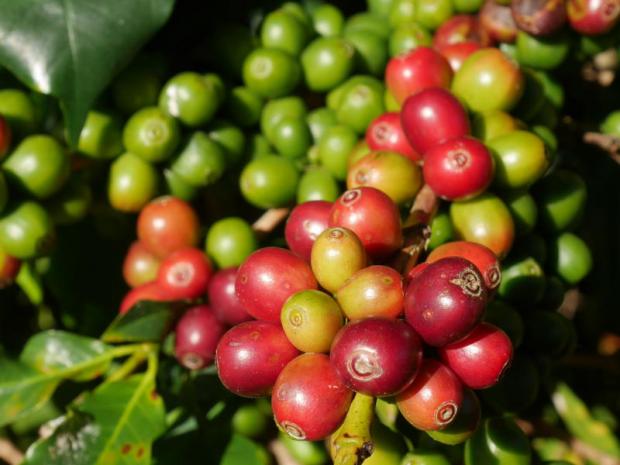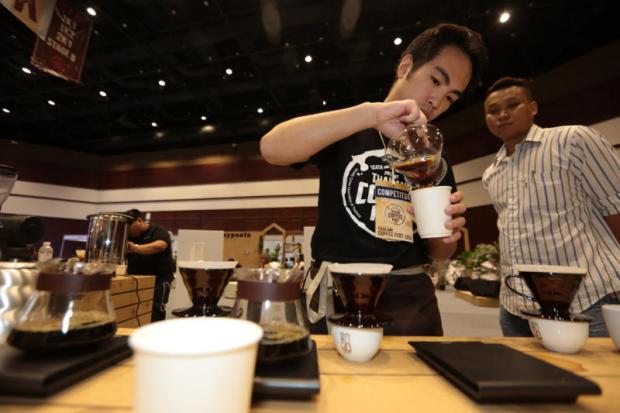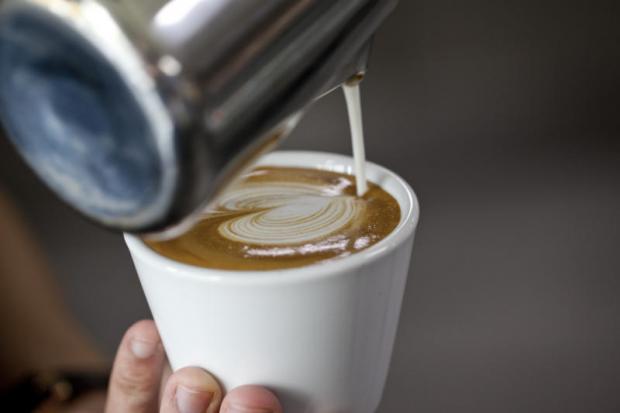
Three decades ago, coffee drinkers in Thailand largely had two choices, Kafae Boran or instant coffee. But over the past 20 years, the country's tea-drinking tradition has given way to a full-blown coffee culture.
More consumers have developed a thirst for coffee, especially freshly brewed, and are willing to pay a premium for a nice cuppa.
The business of catering to coffee drinkers in Thailand is booming, with an annual market estimated at 36 billion baht and rising.
Meechai Amornpathanakul, vice-president of the Asian Coffee Federation and president of the Barista Association of Thailand, said the coffee market is expected to double over the next five years. The premium coffee segment will double in size, while the mass coffee market will grow by 2-3 times.
"We will see a new business model for coffee consumption in Thailand over the next two years, driven by AI, big data and blockchain," Mr Meechai said. "Coffee will be a rising star in the food and beverage spotlight, with existing coffee players needing to adjust to stay alive."
A coffee enthusiast who requested anonymity said coffee players from Japan, China, South Korea, Australia, Indonesia and Singapore are talking with Thai partners about collaboration.
He said the coffee business is promising in Thailand, confirming that CP All Plc, a subsidiary of Charoen Pokphand Group (CP Group), will quietly serve All Cafe coffee at 7-Eleven stores after hiring a famous actor to advertise its coffee two years ago. CP Group rebranded Muan Chon coffee last year to provide a coffee corner at some Chester's restaurants.
Instant coffee brand Nescafe also opened its first coffee hub store to test the market response last year, while Mudman Plc, the operator of Dunkin' Donuts, jumped into the market last year.
CROWDED FIELD
The latest and biggest disruption in an already crowded market was the acquisition of the Wawee coffee chain by billionaire Charoen Sirivadhanabhakdi in the fourth quarter of last year.
The newly cash-rich Wawee plans to open 1,000 new franchised locations in the next five years. About the same number will be opened by other existing coffee players.
Beyond consumers, business strategies will also have to change. New price points will be adopted, along with new menus and competitive marketing blitzes. McDonald's recently announced a lower-priced line of coffees, while Cafe Amazon has outpaced Starbucks in sales by offering more affordable prices.

A barista shows his skill at a coffee festival in Bangkok. CHANAT KATANYU
"Competition will be very intense this year," said Kavin Kittiboonya, managing director of Kavin Intertrade Co, the organiser of a coffee, bakery and ice cream fair. "The coffee business is a dream for many in the younger generation. They want to enter this year because it is not difficult to start a business and the upfront investment cost is not high. Moreover, it has alternatives to enter the market by own investment or on a franchise basis."
Coffee consumption in Thailand will continue to increase, fuelled by mushrooming expansion of new coffee shops across the country. This may force some smaller mass coffee brands to turn themselves into specialty, high-end coffee shops.
Mr Kavin said specialty coffee shops, those utilising coffee-making machines and drip coffees, will continue to grow. In addition, the roasting business is improving because new baristas have more incentive to make more signature drinks to differentiate themselves from rivals.
SUPPLY AND DEMAND
According to Euromonitor, 8,025 coffee shops operated in Thailand in 2018, up 4.6% from the previous year.
Thailand's overall coffee market is worth 36 billion baht, of which 20 billion belongs to instant coffee, 1.2 billion baht is the premium market and rest is other segments. Key players in the market include Amazon, Starbucks, Doi Chaang, Coffee World, True Coffee and All Cafe.
FamilyMart has introduced Japanese-style coffee to its customers. McThai Ltd, the operator of McDonald's, began serving fresh brew from 100% arabica beans earlier this year.
Coffee consumption in Thailand is rising by an average of 15% a year. Per-person consumption of coffee in Thailand is about 300 cups a year, compared with 400 in Japan and 600 in Europe. Finland has the highest coffee consumption per person, with about 1,000 cups a year.

Coffee consumption in Thailand is rising by an average of 15% a year. KRIT PROMSAKA NA SAKOLNAKORN
"There is still huge potential to expand the coffee business in Thailand," said Phitsanuchai Kaewphichai, co-founder of Doi Chaang Coffee Management Co, the operator of the ubiquitous chain. Coffee consumption in Thailand is likely grow to over 5kg per person per year, up from less than 1kg per person in the past decade.
Mr Phitsanuchai expects premium brands that withdrew from Thailand to return this year. The competition, particularly in the premium segment, will be more intense because SMEs or independent coffee houses will import coffee for specialty coffee menus.
Doi Chaang plans to open 30 more coffee shops in Thailand this year and sell its roasted coffee at modern retail chains and new products at the ThaiFex exhibition. Additional Doi Chaang coffee shops will open overseas.
Nednapa Srisamai, managing director of Starbucks Coffee Thailand, insists that demand is still growing in the Thai coffee market -- and Starbucks aims to fulfil that demand. Euromonitor recorded growth in the Thai coffee market of 22% between 2016 and 2018.

"According to research conducted by Marketeer, Starbucks is still the first brand that comes to mind when people are asked about coffee," Ms Nednapa said. The company believes in deeper customer relationships through its partners and coffee masters in order to deliver the Starbucks experience.
Starbucks has 369 stores across the country in various formats apart from in department stores.
"For Starbucks, our growth rate remains healthy," Ms Nednapa said. "We will go wherever our customers want us to be, and we aim to open an average of 30 stores every year and reach 600 stores in 2022."
The company recently launched the first Starbucks in a petrol station in Kanchanaburi. It previously has introduced Starbucks Draft beverages infused with nitrogen to Thai customers and had excellent feedback.
"We will continue to elevate the Starbucks experience for all customers with different and changing lifestyles," Ms Nednapa said.
The Barista Association's Mr Meechai said that while coffee is a rising star in Thailand and matches current lifestyles, the government has not supported the middle and upstream coffee industry in a manner conducive to competing in Asean.
"Some regulation remains an obstacle to the middle to upstream coffee industry to continue growing," he said. "Some regulation still shades some SMEs out of the industry."
NOT JUST CHAINS
While the big-dog chains duke it out for market share, small independent coffee shops are still thriving in Bangkok. In order to stay ahead of the competition, they often incorporate a mix of style, quality and events to draw customers away from larger chains.
"Honestly, I don't really think of large franchises like Starbucks and Amazon as competitors, they are peers within the same industry," said Varatt Vichit-Vadakan, founder of Roots, a coffee shop with locations in Sathon and Thong Lor. "The coffee industry is so big and has many segments of price point and quality, each with its own audience and market, that we can all thrive within our own spaces."
Mr Varatt said his business is set apart by the use of high-quality beans and transparency with the customer about the origins and details surrounding each type of coffee bean.
Bridge Art Space on Charoen Krung Road has a cafe in the front and a gallery in the back, and it hosts events throughout the week to attract customers.
"We cater to creatives who enjoy supporting local businesses and meeting like-minded individuals," said Thamrat Panpumchuen, owner of Bridge Art Space. "Our customers come to enjoy the coffee or the art and end up staying for both."
He said most customers are looking for the same things in a coffee shop: "Good coffee, a nice atmosphere, strong WiFi and a toilet." But his business adds art as an added draw.
Gallery coffee shop, located inside the Bangkok Art & Culture Centre, uses its small size to its advantage, making personal connections with its customers.
"Because we are not a franchise and our shop size is small, we are very close to our customers," said Natthiti Ampriwan, owner of Gallery. "Customers become our friends and we treat them like our family. We give them what we eat, like delicious cake served in the shop, and we give them what we drink: quality coffee."
Despite the optimism about growing demand for coffee in the country, Mr Natthiti thinks there's already a glut in Bangkok.
"There are way too many, not only cafes but coffee stands and coffee booths in convenience shops as well," he said.